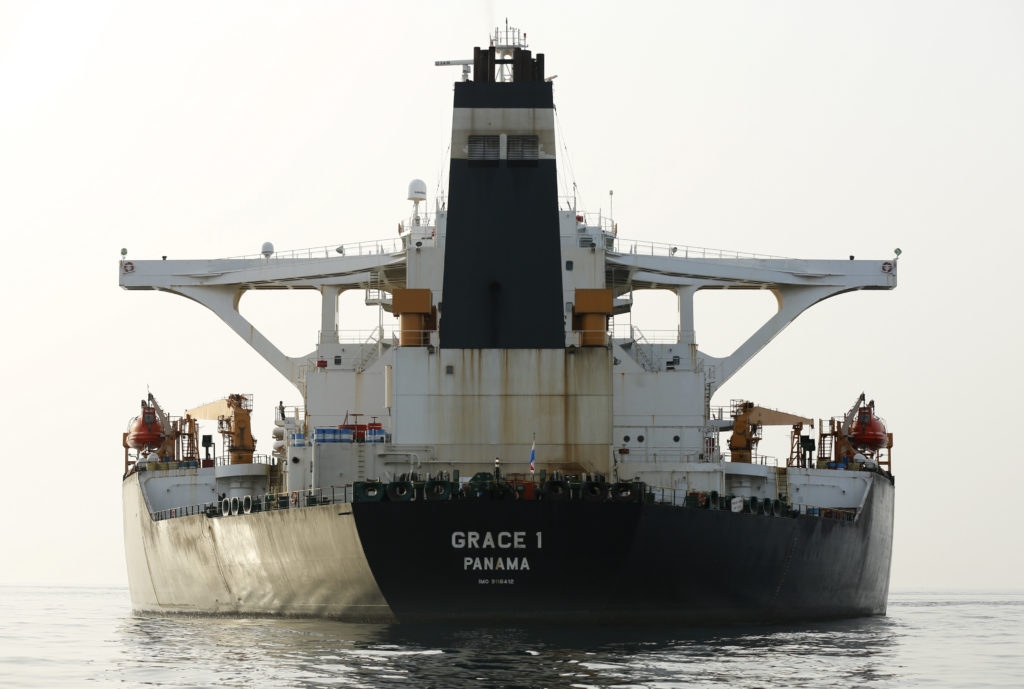IN THE MEDIA
We’re right to protect oil supplies against Iranian attack
September 6, 2019 | Ahron Shapiro

September 5, 2019 – This article first appeared in The Age
Ensuring the free passage of the significant portion of Australia’s oil supply which is shipped through the Persian Gulf’s narrow Strait of Hormuz is obviously in our national interest.
Up to 16 per cent of crude oil and 30 per cent of refined oil destined for Australia pass through the Persian Gulf, where Iran is suspected to have been responsible for six separate attacks on tankers in recent months.
For this reason, the Morrison government’s decision to contribute a frigate, surveillance aircraft and supporting personnel to the US-led International Maritime Security Construct in the coming months deserves the bipartisan and broad support it is receiving.
Some pundits oppose this decision by drawing parallels with the lead-up to the 2003 Iraq war, and express concerns that Australian involvement in ensuring the safe passage of ships risks entangling us in open-ended military conflict.
Many also blame US President Donald Trump for precipitating the current crisis by pulling the US out of the 2015 Joint Comprehensive Plan of Action (JCPOA) nuclear deal last year.
Those pushing this line largely ignore Iran’s violations of the agreement, including maintaining a secret nuclear archive of weapon development research hidden from the International Atomic Energy Agency.
Those who insist everything was under control until the US pullout are not making realistic projections about the future.
The JCPOA supplied Iran with extensive funding which allowed it to vastly increase its support for terrorism and destabilising activities across the whole Middle East region in the years since – in Syria, Iraq, Afghanistan, Yemen, Lebanon, Gaza and elsewhere. Meanwhile, on top of a very limited inspection regime, the JCPOA’s own sunset clauses mean virtually all restrictions come off Iranian uranium enrichment efforts in a few short years – while Iran was allowed to work on missiles and advanced centrifuges all along.
In other words, until the US pullout, the way things were going, an Iran with nuclear weapons capabilities, already behaving like a bullying rogue state against all its neighbours, looked all but inevitable in perhaps 10 years’ time.
The current situation is also definitely not Iraq in 2003, when the US administration openly went into the crisis determined to bring down the regime of Saddam Hussein, by military means if necessary.
Yet far from being eager for military engagement, last September Trump slammed the 2003 Iraq war as “the worst single mistake ever made in the history of our country”.
When Iran downed a US drone in the Strait of Hormuz in June, Trump aborted at the last minute a retaliatory attack, calling it “not proportionate”.
Trump has explained repeatedly that he believes sanctions and patience – not war – will eventually bring Iran’s leaders to renegotiate a much better nuclear deal.
Both Trump and administration officials have time and again reassured Iran’s mullahs not only that they don’t want war, but also that pressure to renegotiate the 2015 nuclear deal and moderate Iran’s regional behaviour is not intended to threaten their rule.
At the G7 conference in France on August 26, Trump told reporters, and not for the first time, “We’re not looking for regime change. You’ve seen how that works over the last 20 years, that hasn’t been too good.”
On July 16, then-acting US Defence Secretary Mark Esper said at his Senate confirmation hearing, “We are not seeking war with Iran, we need to get back on the diplomatic channel.”
Meanwhile, Trump knows American voters do not want a war with Iran. According to a Gallup poll on August 20, 78 per cent favour pursuing non-military efforts to stop Iran’s nuclear program.
Moreover, even the high-profile Iranian Foreign Minister, Javad Zarif, does not believe Trump is looking for military escalation, as he told Reuters in April: “I don’t think he wants war.”
To be sure, in the same interview Zarif insisted that what he called Trump’s “B team” – whom he identifies as Trump’s national security adviser John Bolton and Israeli Prime Minister Benjamin Netanyahu – and their “thirst for war” and could drag Trump into conflict.
But Zarif’s accusation does not align with the words of Bolton and Netanyahu.
On August 27, Bolton told Radio Free Europe that, “If there is a comprehensive deal, then of course the sanctions will come off at that point.” These are words of negotiation, not belligerency.
As for Netanyahu, when asked by Israel Hayom on July 21 whether he supported “an attempt to bring down the Iranian regime, or negotiations that will lead to a better deal”, the Israeli leader was ambivalent about regime change, but what he really wanted was policy change.
“I won’t weep if there is a regime change, but [pressure] could also lead to a change within the regime, a change of policy,” Netanyahu said.
On this point, Netanyahu has been unwavering and consistent over many years. As he told the US Congress in 2015, “We’re being told that the only alternative to this bad deal is war. That’s just not true. The alternative to this bad deal is a much better deal.”
Frankly, claims that the current Gulf crisis looks like Iraq in 2003 appear to be an ill-informed attempt by some commentators to refight the last war – while the insistence that the JCPOA was “working” is equally ill-informed.
Using these claims as an excuse to argue that Australia should not help prevent Iran from repeatedly attacking tankers in the world’s most important strategic waterway in violation of international law simply makes little sense.
Tags: Australia, Donald Trump, Iran, JCPOA, Scott Morrison





